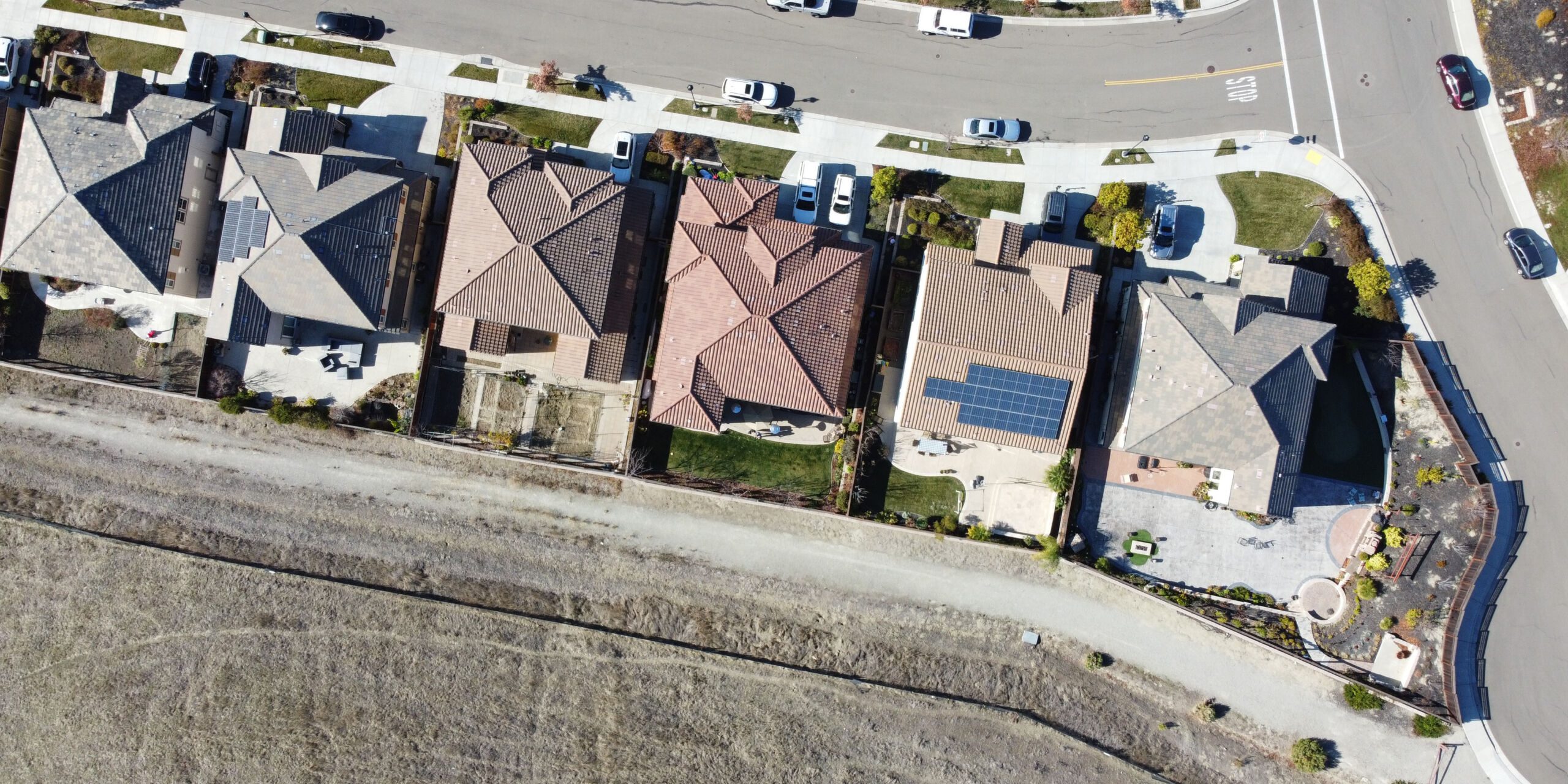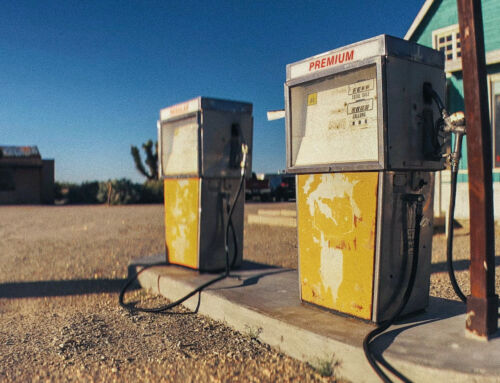View by Topic
Recent Articles
-
Congress Blocks California’s Gasoline Car BanSaturday, May 31st, 2025
-
EPA Will Keep Current Limits for “Forever Chemicals” in Drinking WaterSaturday, May 24th, 2025
-
Court Indefinitely Pauses SEC Climate Rule LitigationSaturday, May 17th, 2025
-
Maryland is About to Regulate Mold But is the Cart Before the HorseSaturday, May 10th, 2025
View by Month/Year
“Green Building Law Update” Headlines
Recent Articles & News from
Stuart Kaplow’s blog
at GreenBuildingLawUpdate.com
- Congress Blocks California’s Gasoline Car Ban: A Legal and Policy Analysis June 1, 2025
- EPA Will Keep Current Limits for “Forever Chemicals” in Drinking Water May 25, 2025
- Court Indefinitely Pauses SEC Climate Rule Litigation May 18, 2025
- Maryland is About to Regulate Mold: But is the Cart Before the Horse? May 11, 2025
Subscribe to the Green Building Law Update!
Stuart Kaplow brings his expertise and extensive experience to the table with his unique digital publication, "Green Building Law Update". Subscribers receive regular updates to keep them informed about important issues surrounding Environmental Law, Green Building & Real Estate Law, as well as the emerging demand for Environmental Social Governance (ESG).
Get fresh content through the lense of Stuart Kaplow's cutting-edge expertise, innovative commentary and insider perspective. Don't miss another issue! Subscribe below.

Selling the Sun: Sale of a House with Solar Panels is Fraught with Peril
There are more than 3 Million houses in the U.S. with solar panels installed on the roof. The Inflation Protection Act of 2022 extended the 30% federal tax credit for residential solar panels through 2034 which is predicted to more than triple that number of solar installations.
And as those houses are each year in larger numbers being resold, consumers are learning it can be perilous to fail to properly address rooftop solar panels when entering into a contract for the sale of a house. The issues are different if the solar panels are owned or leased by the homeowner.
A principal difference may be value. An authoritative research paper by the Lawrence Berkeley National Laboratory “found clear evidence that solar systems are correlated with higher selling prices if those systems are owned by the homeowner [but the price premium is only the cost of the solar system and not more]. Alternatively, .. no value or slightly lower values associated with non-owned [leased] panels.”
But it is a little more nuanced than that. If the seller owns the panels, they are valued in the house appraisal allowing greater mortgage borrowing. But leased panels are not appraised (i.e., they are personal property belonging to someone else). Additionally, a buyer’s lender will likely include the monthly solar lease in a debt-to-income calculation resulting in less borrowing capability for a buyer, hence a possible lower offer for that house.
Beyond the value of the solar panels, there are other real issues of concern to a house purchaser, including the condition of the roof (under the panels). And if the solar panels are owned, beyond matters of warranties and their transferability, is there a maintenance agreement for the system that can be transferred, and at what cost?
As this industry matures and panels have been on roofs for numbers of years, what are the useful lives of solar panel systems? If new solar panels are significantly more efficient, how much is a buyer willing to pay for the old system on the roof?
And despite that solar panels are perceived by many as de rigueur in reducing carbon, there is a real risk a house purchaser will be concerned about the supply chain of the panels given that the global solar panel supply chain relies heavily on forced labor from China, even though the U.S. solar industry has been all but silent failing to “address the gross violations of human rights in the Xinjiang Uyghur Autonomous Region.” Panels produced with modern slavery may turn off many house buyers.
But curiously, the problems homebuyers report are those arising from the failure to correctly transfer installed solar panels.
This is an emergent area. Ten years ago it did not even exist. Today, the contracts for the resale of a house are often provided through a multiple listing service usually by a local board of realtors and most of those forms simply do not adequately address rooftop solar panels. A form that may be the most widely utilized in the country only provides,
SOLAR PANELS: Solar panels are devices that convert light into electricity. If solar panels are installed on the property, the Buyer is advised to inquire about the terms under which the solar panels were installed, how to transfer the ownership or lease, and any costs associated with the transfer.
Really? Rather than be helpful, that language only serves to mitigate risk for real estate brokers.
There is of course no one homogeneous solar panel “deal” with contract terms including ‘who owns the panels’ varying from one transaction type to another, and these installations are governed by a checkerboard of state laws.
That observed, many residential solar panel “leases” contain language similar to, ..
You agree that the solar panel system is the Company’s personal property under the Uniform Commercial Code. You understand and agree that this is a lease and not a sale agreement. The Company owns the solar panel system for all purposes.
Obviously, that language presents an issue when selling a house with solar panels installed on the roof that belong to someone else. But despite that language in a contract, in many states, the so called 20 or 25 year leases are actually not leases of fixtures attached to the land because they are not recorded and a lease of real estate and improvements of 7 years or more (the length of time varies from state to state) that is not recorded is not enforceable.
But it is also common that those residential solar panel leases, really adhesion contracts, contain language similar to, ..
If you sell your home, you can transfer this lease and the monthly payments.
The person buying your home can sign a transfer agreement assuming all of your rights and obligations under this lease by qualifying in one of three ways: (1) the home buyer has a FICO score of 650 or greater; (2) the home buyer is paying cash for your home; or (3) if the home buyer does not qualify under (1) or (2) if the home buyer qualifies for a mortgage to purchase your home and the home buyer pays us a $250 credit exception fee.
Or, if you are moving to a new home in the same utility district, then where permitted by the local utility, the system can be moved to your new home. You will need to pay all costs associated with relocating the system, ..
Some of the companies that engage in this business (.. but not all and maybe not even most) file a UCC-1 financing statement or file in the land records that put third parties on notice of their rights in the system. That fixture filing in most states is a lien or encumbrance against the system. But because in many residential transactions, title companies do not search the UCC-1 indexes (.. that are primarily used for business purposes), solar leases are regularly missed, if they are filed at all.
However, the express language of solar system leases cannot be missed,
EXCEPT AS SET FORTH IN THIS LEASE, YOU WILL NOT SUBLEASE, ASSIGN, SELL, PLEDGE OR IN ANY OTHER WAY TRANSFER YOUR INTEREST IN THE SYSTEM OR THIS LEASE WITHOUT OUR PRIOR WRITTEN CONSENT.
Maybe not surprisingly, this dark underbelly of the solar industry is not only a residential problem. This firm regularly receives inquiries arising from commercial real estate transactions that have not adequately addressed matters of solar panels, PPAs, tax credits, and the like.
And while it might appear there is little litigation in this area, such is deceptive. Most residential real estate contracts contain mediation provisions, if not also mandatory arbitration provisions, so these disputes and differences are often resolved through alternative dispute resolution processes without judicial redress. But those contracts also usually contain fee shifting clauses such that the prevailing party in the mediation is entitled to attorneys’ fees.
The federal government predicts more than 6 million new residential solar panel installations flowing from the 30% tax credit in The Inflation Protection Act of 2022, so concomitantly, the issues related to the sale of houses with those panels on the roof will get much larger, faster.
Selling a house with solar panels is fraught with peril. There can be real legal jeopardy and significant dollar liability for both the seller and buyer, failing to address the issues associated with solar panels. That observed because we know anecdotally that houses with solar panels sell faster than their nonsolar counterparts (.. maybe as much as twice as fast!) so there is an increased opportunity to turn the environmental risk, that is solar panels, into an opportunity.
A live webinar “Net Zero Pledges by Businesses,” 30 talking points in 30 minutes, Wednesday, October 26 at 9 am EST presented by Stuart Kaplow and Nancy Hudes on behalf of ESG Legal Solutions, LLC. The webinar is complimentary but you must register here.









